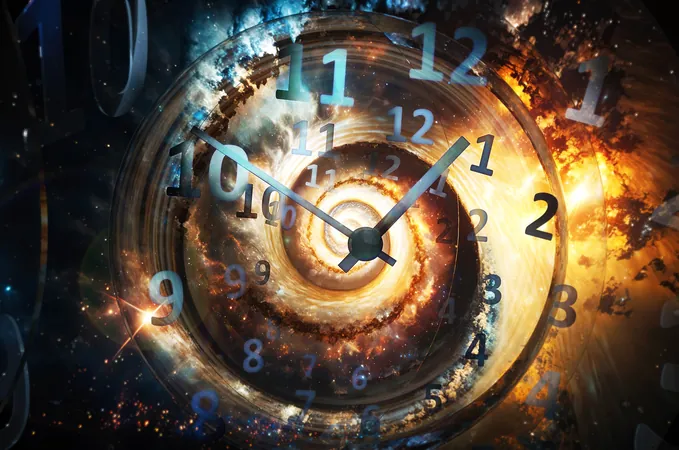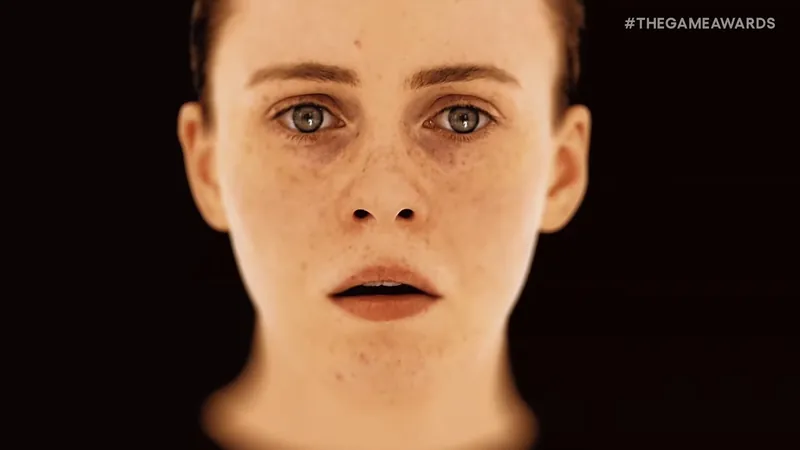
Are We Living in an Illusion? The Shocking Science Behind Time's Non-Existence!
2025-01-10
Author: Amelia
Time: The Mirage We Live?
Though it feels tangible, time can be a trick of perception. Researchers propose that our sense of a flowing "now" might be nothing more than a complex mental construct. This notion disrupts our conventional understanding, where events occur in a linear sequence from past to present to future.
Prominent physicists, such as Dr. Carlo Rovelli, a leading figure in loop quantum gravity, assert that time might not be a fundamental aspect of the universe. His work suggests that many scientific equations don't actually define specific "now" moments, leading to a staggering realization that our perception of time could be misconstrued.
A Bizarre Reality of Time Distortion
Our daily routines rely on fixed concepts of time. Yet, experiments reveal a phenomenal truth: Gravity affects time's passage. For instance, time flows slightly slower at lower altitudes compared to higher ones due to Earth's gravitational influence. This concept is known as time dilation, heavily documented in Einstein's theories of relativity.
Einstein shattered the mold with his revolutionary theories suggesting that time is not a set constant but rather a malleable entity influenced by speed and gravity. The faster you move, or the deeper into a gravitational field you dive, the slower time ticks — an idea now proven through experiments employing atomic clocks and GPS satellites.
The Flow of Time: Psychological vs. Physical
While time feels like an ever-forward rush, scientists argue that this perception may be nothing more than an illusion created by our brains. Instead of a universal present, moments coexist, with our narratives crafting a false sense of order. Perhaps, the experience of time "flowing" emerges from a tapestry of correlations between events, woven together by our memories.
Quantum Physics: A New Dimension of Time
In the quantum realm, time's role becomes even more elusive. The Wheeler-DeWitt equation, pivotal in the study of quantum gravity, famously leaves time out of the equation altogether, focusing instead on correlations rather than evolution. It suggests time may only emerge when we categorize experiences into digestible "clocks," further obscuring our understanding of what time genuinely represents.
The Endless Arrow: Time and Entropy
Despite the skepticism around the existence of time, we are acutely aware of its relentless arrow pointing from past to future. This phenomenon ties into entropy, a measure of disorder. Per the second law of thermodynamics, entropy in isolated systems consistently increases, leading us to experience time as always moving forward — a perception deeply embedded in our reality.
The Human Experience: Time's Lasting Illusion
Some theorists speculate that time may one day be seen as mere accounting — a clever device rather than an elemental force. Nevertheless, our lives are intricately coordinated by its rules; we structure our days around it, sensing an urgent reality of time's passage.
Ultimately, the most confounding question may not be whether time exists but why we are so attached to the notion of its unyielding flow. Will human consciousness evolve to comprehend the essence of time? That remains an enigma waiting to unfold.
As we continue to grapple with this profound mystery, one thing is clear: Time, whether real or an illusion, shapes our lives in ways we are only beginning to understand. So, are we merely passengers on a cosmic ride, or can we unlock the secrets that lie behind the veil of time itself? Only time will tell.









 Brasil (PT)
Brasil (PT)
 Canada (EN)
Canada (EN)
 Chile (ES)
Chile (ES)
 Česko (CS)
Česko (CS)
 대한민국 (KO)
대한민국 (KO)
 España (ES)
España (ES)
 France (FR)
France (FR)
 Hong Kong (EN)
Hong Kong (EN)
 Italia (IT)
Italia (IT)
 日本 (JA)
日本 (JA)
 Magyarország (HU)
Magyarország (HU)
 Norge (NO)
Norge (NO)
 Polska (PL)
Polska (PL)
 Schweiz (DE)
Schweiz (DE)
 Singapore (EN)
Singapore (EN)
 Sverige (SV)
Sverige (SV)
 Suomi (FI)
Suomi (FI)
 Türkiye (TR)
Türkiye (TR)
 الإمارات العربية المتحدة (AR)
الإمارات العربية المتحدة (AR)